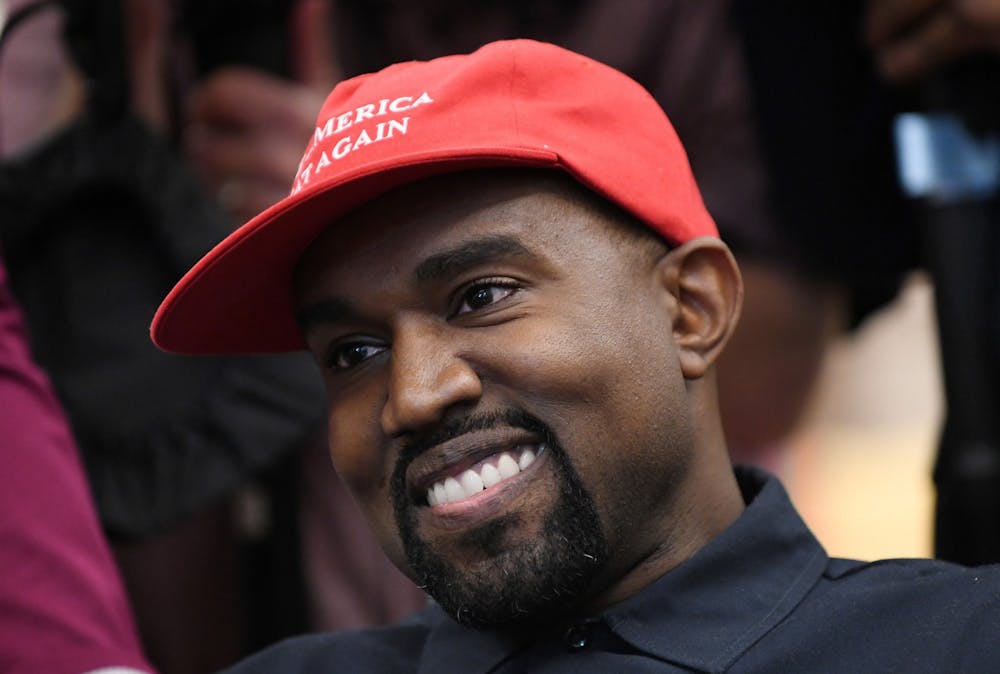Rapper and entrepreneur Kanye West tweeted July 4 that he was running for president. Tesla CEO Elon Musk replied to the tweet pledging his full support, but many people, especially those on the left, responded much less positively to West’s announcement. To them, it poses a threat to former Vice President Joe Biden’s lead over President Donald Trump in the upcoming election.
Some took to social media to share their dismay and urge their followers not to vote for West, sharing messages such as “A vote for Kanye is a vote for Trump” and “Please don’t vote for Kanye as a joke.” But does West’s tweet, and possible candidacy, really change that much about the U.S. presidential election?
No, it doesn’t. With filing deadlines having already passed in several states and West making no real effort to run an actual presidential campaign, it seems far more likely that this tweet is his latest effort to promote his new music or business ventures, something he has a history of doing.
West has become a rather interesting political figure during the Trump presidency. Despite donating to Hillary Clinton’s 2016 presidential campaign, he has since emerged as a vocal supporter of Trump. Therefore, many expected him to step away from his long-promised 2020 presidential run, which he first announced at the 2015 MTV Video Music Awards, and back Trump’s reelection bid.
It appears, however, that West is beginning to move away from Trump, having taken a firm stance in support of the Black Lives Matter movement and recent protests against police brutality and racial injustice. He also donated $2 million to the families of Breonna Taylor, George Floyd and Ahmaud Arbery.
As recently as April, West told GQ interviewers he would be voting for Trump in the 2020 election, and it remains to be seen when and why he changed his mind and decided to run for president.
Though his tweet drummed up a lot of attention on social media, receiving more than 500,000 retweets, West has done nothing so far to actually run a serious presidential campaign. The deadline to file and get his name on the ballot in November has already passed in Indiana, Maine, New Mexico, New York, North Carolina and Texas, and he hasn’t made an effort to file with the Federal Election Commission or hire any campaign staff.
A valid concern posed by West’s tweet, even without him taking steps to get his name on the ballot in any state, is write-in votes. A majority of states either don’t allow write-in votes at all or require some sort of filing or petitioning, but a handful, including swing states like Pennsylvania and New Hampshire, have no requirements for write-in candidates.
This means that, hypothetically, West could receive enough write-in votes in Pennsylvania and New Hampshire to change the outcome of the election in those two states, though it isn’t likely. In 2016, only 1.6% of the presidential vote in New Hampshire and 0.8% in Pennsylvania went to write-in candidates. Biden is currently projected to win both states by margins larger than what went to write-ins in 2016.
It is also very possible that West announces his departure from the race or continues to be absent in the run-up to November. While there is no way to confirm how serious he is about the campaign, there is reason to suspect it might all be a big publicity stunt.
Only days before his tweet announcing his run for president, West signed into a 10-year deal to produce a Yeezy apparel line for Gap and released the first single for his upcoming album. Both ventures could definitely benefit from increased publicity for West.
Whether or not he actually plans to see his apparent presidential bid all the way through, West, at this current moment, poses no real threat to Biden or Trump. Sure, it’s good to stay informed about the political process and who is running for what political office, but freaking out over something that likely will have no real effect on the election is both unnecessary and unhelpful. It’s just giving West even more publicity and, by extension, more money.
Jerrett Alexander (he/him) is a freshman studying international relations and environmental sustainability. He sits on the Bloomington Commission on Sustainability.






